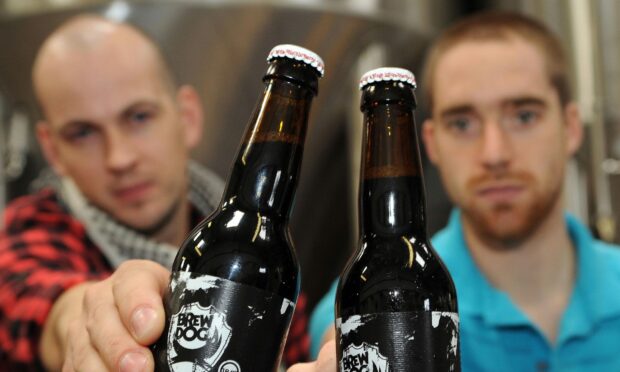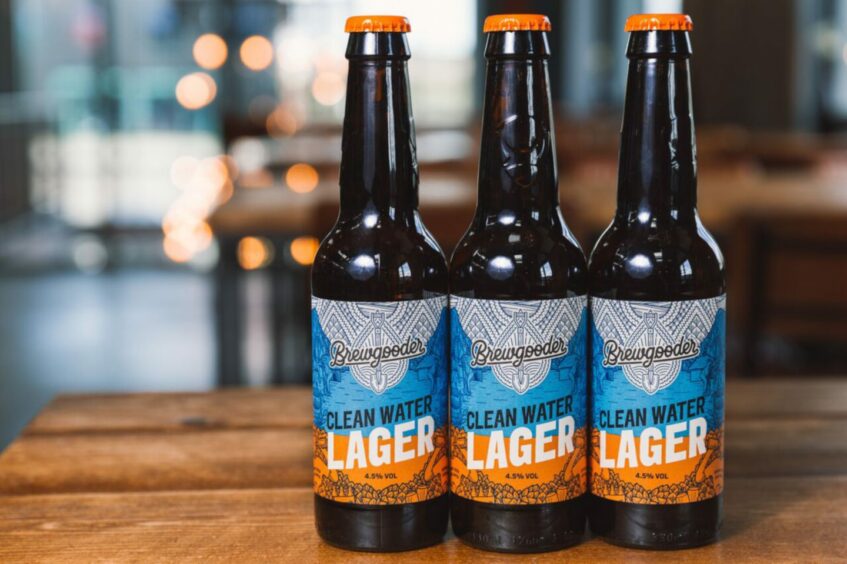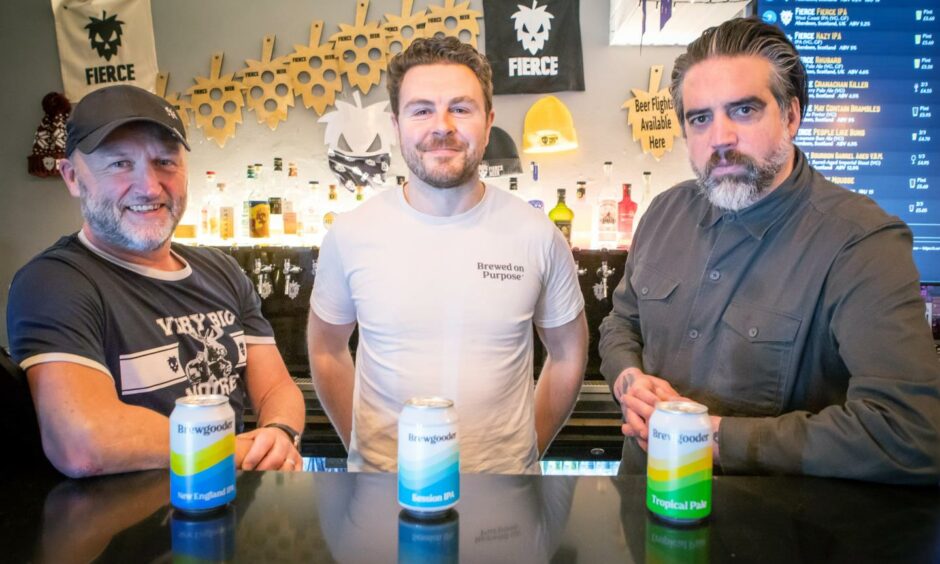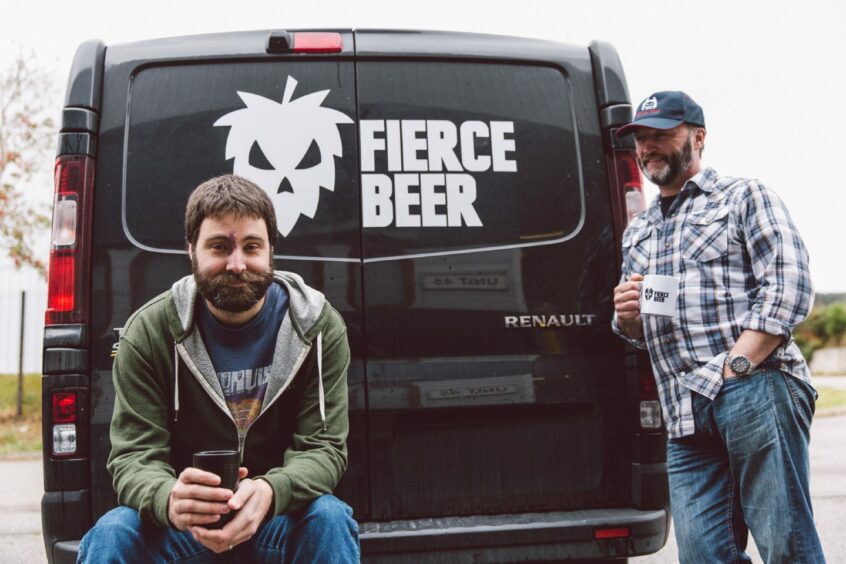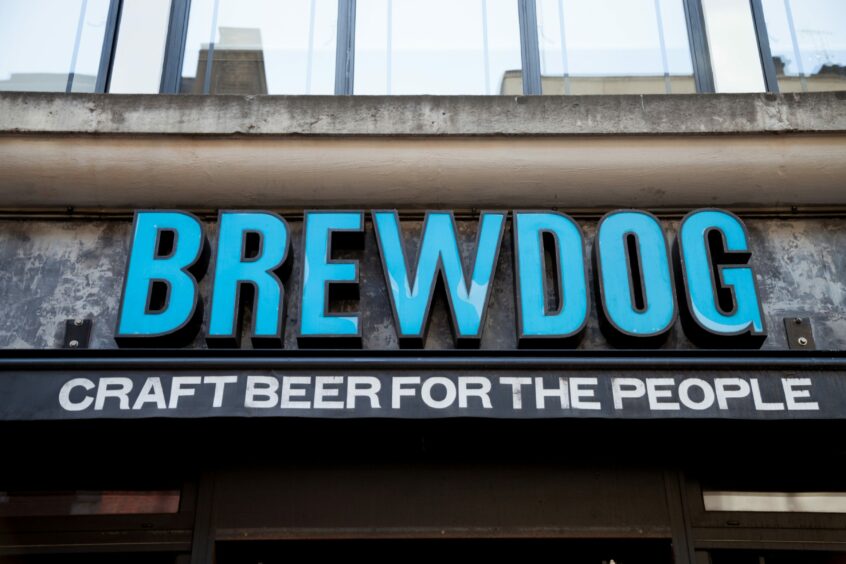The duo behind controversy-plagued craft brewer BrewDog are no longer trustees of the social enterprise they helped to launch and produced beers for.
James Watt and Martin Dickie teamed up with Alan Mahon and Josh Littlejohn, co-founders of not-for-profit sandwich shop chain Social Bite, to get Brewgooder off the ground in 2016.
But Mr Watt and Mr Dickie resigned as trustees of its parent, The Brewgooder Foundation, in October 2020, accounts lodged at Companies House show.
Ellon-based BrewDog has been making headlines for all the wrong reasons since then.
Allegations about “toxic” workplace practices and “inappropriate” behaviour by one of its bosses would not sit well with Brewgooders’ coveted B Corp status.
Aberdeen-based Fierce Brewing has now teamed up with Brewgooder to help deliver clean drinking water to the developing world.
Fierce and Williams Brothers, of Alloa, are partnering the social enterprise in its ambition to donate one billion pints of water globally.
The collaboration is expected to help deliver more than 22 million gallons this year alone.
Brewgooder donates 100% of its profits to charities around the world.
Its new partnerships are expected to help the “B Corp” business more than treble sales during 2022.
According to the bosses, it is on track for £5 million annual turnover by 2024.
Mr Mahon said the socially conscious message was “spreading farther and wider”.
He added: “We are now firmly established as the foremost purpose-led brewer in a category where consumers are increasingly demanding purpose from brands.
“Consequently, we’ve seen demand for our beers surge in the past 18 months, and that is set to accelerate in 2022 and 2023.
“We have developed a range of new, accessible, and uncompromising beers in-house for 2022 to continue that momentum.
“Our ‘distributed’ brewing model allows us to put these recipes to work with the very best brewers in the country, while keeping environmental sustainability front and centre.”
Fierce has become one of the north-east’s craft-brewing success stories since Dave Grant and Dave McHardy co-founded the venture in 2016.
The multi-award-winning brewery has built a thriving direct-to-consumer business, owns bars in Aberdeen, Edinburgh and Manchester, is active in high-growth international markets, and has a string of collaborations around the world.
Mr Grant, managing director, said: “We’re incredibly excited to team up with the amazing team at Brewgooder and play a part in helping them continue their outstanding work to empower communities and make clean water accessible for everyone around the world.”
Fierce Beer smashes £100k crowdfunder in under 24 hours and introduces £150k target for new brewery
Williams Bros’ founder and owner Scott Williams said: “It’s a lovely opportunity to widen distribution and awareness of our brewing capabilities, with the added glow of helping the guys help others.”
Edinburgh-based Brewgooder has struck deals it said would see it introduce at least six new beers and pack formats to customers UK-wide, including the Co-op, Asda and Mitchells & Butler.
Watt and Dickie exit revealed
A spokesman for Brewgooder said the latest partnerships were for new beers – so not related to BrewDog.
The Aberdeenshire company recently faced criticism after being slated by ex-staff in a BBC Disclosure documentary.
Mr Watt, the firm’s chief executive, was accused of “inappropriate” behaviour.
It was alleged he made women workers feel “uncomfortable” and “powerless”.
Lawyers for Mr Watt denied the allegations, hitting out at “false rumours and misinformation”.
The CEO apologised to anyone who he had made feel uncomfortable in the past.
Ministers urged to cut funding ties
Reports of a workplace “culture of fear” led to calls for the Scottish Government to cut funding ties with BrewDog.
SNP ministers handed between £125,000 and £250,000 to the brewer last October to help it decarbonise.
Last summer, hundreds of former BrewDog staff signed a damning open letter saying the company was “toxic” to work for.
The firm was later rapped by advertising watchdogs over a competition in which customers won beer cans wrongly billed as being made of “solid gold”.
And one of its Instagram posts was banned for making misleading claims over an alcoholic drink.
